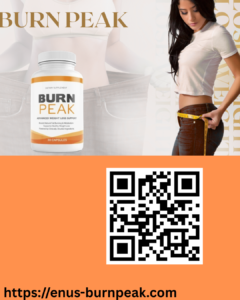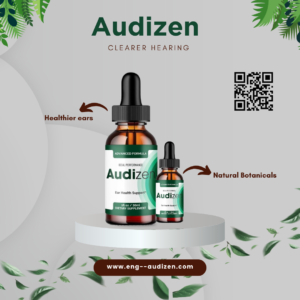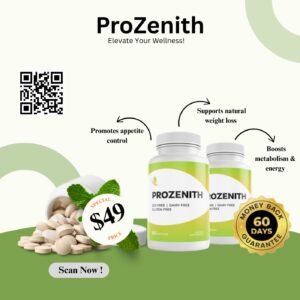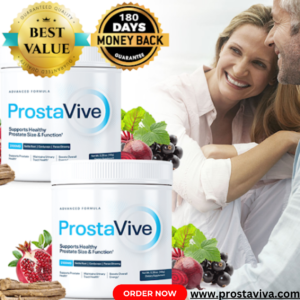How Do CBD Edibles Differ In Effect From CBD Oils?
Cannabidiol (CBD) has become one of the most talked-about wellness supplements in recent years, thanks to its potential benefits for...

Cannabidiol (CBD) has become one of the most talked-about wellness supplements in recent years, thanks to its potential benefits for relaxation, stress relief, and overall well-being. From oils and tinctures to gummies and baked treats, CBD is now available in a variety of forms to match different lifestyles and preferences. Many consumers explore options like Best Selling CBD Products in Pinellas Park to find the right fit, but a common question remains: do CBD edibles work differently from CBD oils? In this article, we’ll break down how each form is absorbed, how long the effects last, and which might suit your personal health goals better.
What Are CBD Oils?
CBD oil is one of the most widely recognized and commonly used forms of cannabidiol. Extracted from hemp plants, CBD oil contains concentrated amounts of cannabidiol suspended in a carrier oil, such as MCT oil, hemp seed oil, or olive oil. Because of its versatility and quick absorption, it has become a go-to choice for people seeking the potential benefits of CBD.
Different Types of CBD Oils
CBD oils are available in several variations to suit different preferences and needs:
- Full-Spectrum CBD Oil – Contains CBD along with other cannabinoids, terpenes, and trace amounts of THC (below 0.3%), offering what’s known as the “entourage effect.”
- Broad-Spectrum CBD Oil – Includes multiple cannabinoids and terpenes but is THC-free.
- CBD Isolate Oil – Pure CBD with no other cannabinoids or plant compounds, ideal for those who want only cannabidiol.
How CBD Oil Is Typically Used
CBD oil is most commonly consumed sublingually, meaning a few drops are placed under the tongue and held for 30–60 seconds before swallowing. This method allows CBD to enter the bloodstream quickly through the tiny blood vessels under the tongue.
Other popular ways people use CBD oil include:
- Mixing into beverages or food for a more subtle intake.
- Capsules or softgels, which provide the same oil in a pre-measured dose.
- Topical blends, where CBD oil is infused into balms or lotions for localized relief.
Key Benefits of CBD Oil
CBD oil offers several advantages that make it appealing compared to other delivery methods:
- Fast Absorption
- Sublingual use allows CBD to bypass digestion and reach the bloodstream within 15–30 minutes.
- This makes it ideal for those seeking quick relief from stress, anxiety, or sleep difficulties.
- Precise Dosage Control
- With a dropper, users can easily measure their exact dosage in milligrams.
- This is particularly helpful for beginners starting with low doses and gradually increasing as needed.
- Versatility of Use
- Can be taken alone or added to drinks and foods.
- Works for both daily wellness routines and as-needed use.
- Discreet and Convenient
- Easy to carry and use anytime, anywhere without attracting attention.
Who Might Prefer CBD Oils?
CBD oils are best suited for people who:
- Want fast-acting effects (compared to edibles).
- Prefer flexible and precise dosing.
- Are looking for a versatile product they can use in multiple ways.
What Are CBD Edibles?
CBD edibles are food and drink products infused with cannabidiol. Instead of taking CBD through drops or sprays, edibles provide a tasty and convenient way to enjoy the benefits of CBD. From gummies and chocolates to CBD-infused drinks and baked goods, edibles have become one of the most popular options for beginners and experienced users alike.
Common Types of CBD Edibles
The CBD market now offers a wide variety of edible products, including:
- CBD Gummies – Sweet, chewy, and pre-dosed for convenience.
- CBD Chocolates – A flavorful way to mix indulgence with wellness.
- CBD Beverages – Infused teas, coffees, sparkling water, and energy drinks.
- CBD Baked Goods – Cookies, brownies, and other treats that make CBD fun and approachable.
- CBD Capsules/Softgels – Technically edibles, but in pill form for those who prefer a no-fuss option.
Why Do People Prefer CBD Edibles?
CBD edibles are a favorite among many users because they combine wellness with enjoyment. For those who dislike the earthy taste of CBD oil, edibles offer a flavorful and easy-to-consume alternative. They also don’t require droppers, measurements, or holding liquid under the tongue — making them more approachable for beginners.
Additionally, CBD edibles are discreet. Eating a gummy or sipping a CBD-infused drink in public looks just like enjoying a regular snack, making them perfect for on-the-go lifestyles.
Key Benefits of CBD Edibles
- Discreet and Convenient
- No dropper or preparation needed.
- Easy to carry and consume in public without drawing attention.
- Longer-Lasting Effects
- Edibles are absorbed through digestion, so they take longer to kick in (30–90 minutes).
- However, once absorbed, effects may last 4–8 hours, much longer than CBD oil.
- Great Taste and Enjoyment
- Flavored gummies, chocolates, and beverages make CBD consumption enjoyable.
- Ideal for those who don’t like the natural hemp flavor of oils.
- Pre-Measured Dosage
- Each gummy or edible is infused with a fixed amount of CBD.
- This makes it simple to know exactly how much CBD you’re consuming.
Who Might Prefer CBD Edibles?
CBD edibles are best suited for people who:
- Want a longer-lasting CBD experience throughout the day or night.
- Prefer a flavored, enjoyable way to take CBD.
- Need a discreet method for work, travel, or social settings.
- Don’t mind waiting longer for the effects to start.
Absorption and Onset of Effects
One of the biggest differences between CBD oils and edibles lies in how quickly they work and how much CBD your body absorbs. This depends on the method of delivery and the way the body processes each form.
CBD Oils: Faster Absorption (15–30 Minutes)
When CBD oil is taken sublingually (under the tongue), it is absorbed directly into the bloodstream through tiny blood vessels. This allows the body to bypass the digestive system, making CBD oil one of the fastest-acting methods available.
- Onset of effects: 15–30 minutes
- Best for: Quick relief (stress, anxiety, sudden discomfort, sleep support)
CBD Edibles: Slower Absorption (30–90 Minutes)
CBD edibles must go through the digestive process before CBD enters the bloodstream. This means it takes longer to feel the effects compared to oils. However, once absorbed, the effects tend to last much longer.
- Onset of effects: 30–90 minutes
- Best for: Long-lasting relief, daily relaxation, or sustained support for chronic issues
Duration of Effects
Another key difference between CBD oils and CBD edibles is how long the effects last once they set in. While CBD oil provides a faster onset, its effects don’t usually last as long. Edibles, on the other hand, may take longer to work but deliver extended relief throughout the day.
CBD Oils: Shorter but More Controllable Effects (2–4 Hours)
CBD oil typically stays active in the body for 2 to 4 hours. The shorter duration makes it easier to adjust the dosage throughout the day. For example, if you need quick stress relief before a meeting or want to take CBD right before bed, oils allow you to fine-tune when and how much you consume.
- Duration: 2–4 hours
- Advantage: Flexible dosing and better control of timing
- Best for: Situational needs like sudden stress, sleepless nights, or quick relaxation
CBD Edibles: Longer-Lasting Effects (4–8 Hours)
CBD edibles offer a longer-lasting effect, typically lasting 4 to 8 hours after consumption. Because they are digested slowly, CBD is released gradually into the bloodstream, creating a sustained sense of relief. This makes edibles an excellent option for people who want ongoing support throughout the day or night without needing multiple doses.
- Duration: 4–8 hours
- Advantage: Steady, sustained relief
- Best for: Chronic pain, anxiety management, or maintaining calm during busy days
Which Form Suits Daily Routines Better?
Choosing between oils and edibles depends on your lifestyle and health goals:
- Oils are more suitable if you prefer flexibility and fast relief, especially for short-term needs.
- Edibles are ideal if you want longer-lasting effects with fewer doses and enjoy the convenience of a tasty, discreet option.
Choosing Based on Health Goals
When deciding between CBD oils and CBD edibles, it’s important to consider your specific health goals and lifestyle preferences. Each form of CBD has unique advantages depending on what you’re trying to achieve.
CBD Oils: Better for Acute Relief
CBD oils are an excellent option for people who need fast-acting relief. Because the effects begin within 15–30 minutes, they’re often used for:
- Stress or Anxiety: Quick calm before a meeting, presentation, or stressful event.
- Sleep Aid: Taken shortly before bedtime to help the body relax.
- Sudden Discomfort: Useful for managing temporary pain or tension when it arises.
Why choose oils? Oils allow for precise dosage control, meaning you can start small and increase gradually until you find the right balance for your needs.
CBD Edibles: Better for Sustained Effects
CBD edibles are ideal for those seeking long-lasting support rather than immediate results. Because they take longer to digest and release CBD slowly, they’re especially helpful for:
- Chronic Pain: Offering steady relief that lasts throughout the day.
- General Relaxation: Supporting a calm, balanced mood over time.
- Daily Wellness Routines: Easy to incorporate as part of morning or evening habits.
Why choose edibles? Edibles are discreet, enjoyable, and require no measuring — making them perfect for consistent, long-term use.
Matching CBD to Lifestyle Preferences
Ultimately, the best choice depends not only on your health goals but also on your lifestyle:
- If you’re someone who wants control, flexibility, and quick results, CBD oils may be the better fit.
- If you prefer a tasty, convenient, and long-lasting option, CBD edibles could be the right choice.
- Many people even combine both forms — using oils for immediate relief and edibles for all-day balance.
Potential Side Effects and Safety Considerations
While CBD is generally considered safe and well-tolerated, both oils and edibles may cause mild side effects in some individuals. It’s important to understand these possibilities and use CBD responsibly to ensure the best experience.
Common Side Effects of CBD
CBD oils and edibles share similar side effects since the active compound is the same. These may include:
- Dry Mouth: A common effect caused by CBD’s interaction with saliva production.
- Drowsiness or Fatigue: Especially at higher doses, CBD may cause relaxation that feels sedating.
- Digestive Issues: Some users report nausea, diarrhea, or changes in appetite when first starting.
- Lightheadedness: A temporary drop in blood pressure can occur in sensitive users.
Most of these effects are mild and often subside as the body adjusts to CBD.
The Importance of Dosage Awareness
One of the biggest factors in avoiding side effects is proper dosage.
- Start Low, Go Slow: Beginners should begin with a small dose (e.g., 5–10 mg) and gradually increase until they find their ideal amount.
- Oils: Easier to fine-tune because they allow precise measurement with droppers.
- Edibles: Pre-dosed for convenience but harder to adjust in small increments.
Overconsumption may lead to stronger side effects like excessive drowsiness or stomach discomfort, so tracking your intake is crucial.
Interactions With Medications
CBD can interact with certain prescription medications because it affects how the liver processes compounds. This is especially important if you are taking:
- Blood thinners (e.g., Warfarin)
- Anti-seizure medications
- Certain antidepressants or anxiety medications
Always consult a doctor before starting CBD if you are on medication or managing a medical condition. A healthcare professional can help determine safe usage and proper dosage.
Which Is Better: CBD Oils or CBD Edibles?
When it comes to choosing between CBD oils and CBD edibles, there’s no one-size-fits-all answer. The “better” option depends on your health goals, lifestyle, and personal preferences. Both forms offer unique benefits that can make them the right fit in different situations.
Why Choose CBD Oils?
CBD oils are ideal if you:
- Want fast-acting relief within 15–30 minutes.
- Prefer precise dosing that can be easily adjusted.
- Need CBD for situational use such as sudden stress, restlessness, or sleep troubles.
Key Advantage: Quick relief + flexible control over dosage.
Why Choose CBD Edibles?
CBD edibles are a great option if you:
- Want longer-lasting effects that last 4–8 hours.
- Prefer a tasty, enjoyable, and discreet way to consume CBD.
- Don’t mind waiting longer for the effects to kick in.
Key Advantage: Convenient, pre-measured, and long-lasting results.
Conclusion
CBD oils and CBD edibles both provide unique benefits, but they differ in speed, duration, and convenience. Oils offer fast relief within 15–30 minutes and give users precise control over dosing, making them perfect for situational needs. Edibles, on the other hand, take longer to work but provide longer-lasting effects of 4–8 hours, along with the added advantage of convenience and taste.
FAQs
1. Do CBD edibles work the same as CBD oil?
Not exactly. CBD oils are absorbed under the tongue and provide faster relief, while edibles go through digestion, taking longer to work but lasting longer in the body.
2. Which is stronger: CBD oil or edibles?
Neither is “stronger” by default — it depends on dosage and bioavailability. Oils tend to absorb more efficiently, while edibles provide extended effects over time.
3. How long does it take for CBD edibles to kick in?
CBD edibles typically take 30–90 minutes to start working, depending on your metabolism, body weight, and whether you’ve eaten recently.
4. Are CBD oils or edibles better for anxiety?
CBD oils may be better for immediate relief of anxiety or stress, while edibles work well for long-term, steady support throughout the day.
5. Can you take CBD oil and edibles together?
Yes. Many people combine both — using CBD oil for quick relief when needed, and edibles for longer-lasting effects. Just be mindful of your total daily dosage.





